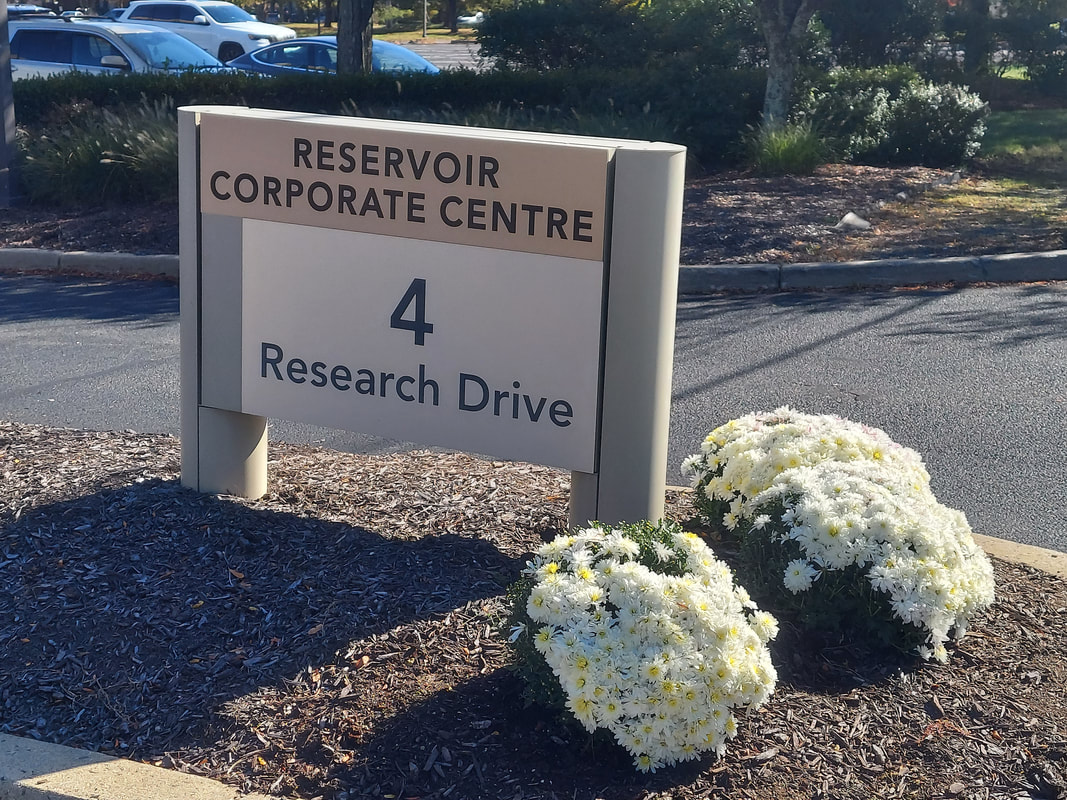There are numerous issues to cover in startup confidentiality agreements, the first of which would be to clearly define what the founders agree will be considered “confidential information”. The parties need to have a clear meeting of the minds regarding what needs to be protected and remain confidential.
What is Confidential Information?
I have seen startup confidentiality agreements that were way too broad and used general language to cover everything and the kitchen sink. The definition of and examples of what is confidential information should fit the situation. For instance, If the company is a marketing company it should identify software, pricing models, plans, drafts, and those things related to the startup. Patents, distributors, and designers might not apply so don’t include unnecessary items that make it seem like you are just using a boiler plate agreement. The startup confidentiality agreement should however, cover information that is currently in existence, being developed, or may be created in the future. This is to protect future ideas, concepts, and information that are being worked on by the startup team and also need to be protected.
I often do work with clients that also want to protect their contacts and relationships. I have separate language I use to protect those contacts, such as developers, client lists, customer list, investor names, and vendor contacts. Their contact lists have been developed over the years and ofter at great effort and expense so they want to protect that information.
I often do work with clients that also want to protect their contacts and relationships. I have separate language I use to protect those contacts, such as developers, client lists, customer list, investor names, and vendor contacts. Their contact lists have been developed over the years and ofter at great effort and expense so they want to protect that information.
Drafting a Strong Non-disclosure Clause
It is not enough to just define and give examples of what information needs to be protected, it is also important to draft a strong non-disclosure clause to protect that information. Explain what happens if someone in the startup management team breaches the startup confidentiality agreement. What happens if the disclosure to outside third parties was accidental instead of intentional? Should there be damages? How should the problem be handled so it does not happen in the future? Damage clauses need to take into account the party signing (founder or low level employee), whether the disclosure was intentional or accidental, and the amount of damage or potential damage from the disclosure. Startups and early stage businesses often use a Founders' Agreement in addition to a limited liabitlity company Operating Agreement to spell out their relationship, ownership percentages and other corporate governance matters. Instead of using separate startup confidentilaity agreements the founders can put confidentiality language and terms in their Founders' Agreement or Operating Agreement.

Joseph B. LaRocco is a business and corporate attorney that handles business contracts, business transactions, entity formations, and corporate governance.
CLICK HERE TO CALL FOR A FREE CONSULTATION 475-244-5141
Joseph B. LaRocco is a business and corporate attorney that handles business contracts, business transactions, entity formations, and corporate governance.
CLICK HERE TO CALL FOR A FREE CONSULTATION 475-244-5141
Remedies for Breach of a Non-disclosure Clause
While damage clauses may be standard when you have third parties sign confidentiality agreements or non-disclosure agreements (NDA) as they are sometimes referred, to have a damages clause in a startup confidentiality agreement with your founding partners will be another matter. It may send the wrong message that your are quick to blame or sue, and that is not the type of message you want to send to partners you are going to be working long hours with side by side on project. Reasonableness is always the best approach and how such clauses are worded depends on all the factors of a particular project and the personalities of the parties involved. For instance, confidentiality agreements for tech startups with partners that have not known each other too long will be quite a bit different than agreements between long time friends in small business startups setting up say a simple ecommerce website that sells t-shirts. The remedy should fit the severity of the problem caused by the improper disclosure.
Who Should Sign Startup Confidentiality Agreements?
Confidentiality Agreements for Founders
The drafting of startup confidentiality agreements for founders will provide enough protection so that the founders can trust in one another. However, drafting founders’ confidentiality agreements can be quite difficult because most founders have been in business for years and have their own information, experience, and know-how that they do not want to be limited in using for existing clients. This is especially the case when one or more founders have existing businesses they are running, and this new startup will not take up all their time and attention. They may need to keep their other business going while working for the startup and so may not want to sign any startup confidentiality agreements.
A confidentiality agreement is important for startups as it's a contract between the startup founders and their investors. Thus, confidentiality agreements should be signed by all founders, not just the CEO or COO. The investors need to have confidence that there will be a tight lid on the information that makes the company special and gives the company its competitive edge.
A confidentiality agreement is important for startups as it's a contract between the startup founders and their investors. Thus, confidentiality agreements should be signed by all founders, not just the CEO or COO. The investors need to have confidence that there will be a tight lid on the information that makes the company special and gives the company its competitive edge.
Confidentiality Agreements for Partners
The same holds true for partners that join the startup later and are not founders. What other business activities or projects they are involved in now or have been in the past will dictate if they will even agree to sign a confidentiality agreement and the scope of what NDA will cover. Sometimes it is easier to get founders and partners to sign non-compete agreements than confidentiality agreements.
Confidentiality Agreements for Investors
Usually a business plan, pitch deck, or executive summary will give just enough information to a potential investor to see if they are interested. If they are and need more information then they will often be asked to sign startup confidentiality agreements to protect the project and prevent competition or the possibility that the investor is already invested in another company that will be competing with the startup. Sometimes the investor will even be asked to sign a startup NDA before they even see the business plan and will simply be told it is a tech startup. Most investors are familiar with signing such non-disclosure agreements but may only agree to sign one on their terms.
Confidentiality Agreements for Executives
It is only common sense that you would have executives sign startup confidentiality agreements to protect not only the launch of the startup but to also protect what may happen in the future. Key executives will presumably learn everything about the new business venture and the more the startup is an “industry disrupter” they more risk there is that the executive could use that valuable information. They can use that confidential information or trade secret information gained while working for the startup to launch their own startup or go with another company or possible competitor that will pay the executive well for that information.
Many executives are often required to sign non-compete clauses or agreements as well. The laws on non-compete agreements or non-competition agreements vary from state to state but the general rule is that as long as the agreement is reasonable in terms of the scope of the job, the territory in which the restriction is imposed, and the length of time it covers, most courts will enforce the restriction on the executive to compete with the startup.
Many executives are often required to sign non-compete clauses or agreements as well. The laws on non-compete agreements or non-competition agreements vary from state to state but the general rule is that as long as the agreement is reasonable in terms of the scope of the job, the territory in which the restriction is imposed, and the length of time it covers, most courts will enforce the restriction on the executive to compete with the startup.
Should You Require Employees to Sign a Confidentiality Agreement?
Depending on the level of or title of the employee, there may be a need for them to sign startup confidentiality agreements as well. This is a judgement call and depends on the type of information they will come into contact with and what they may be able to do with it for their own gain or advantage. If the founders feel certain employees can be a threat to the success of the startup if they leaked or sold information they had access to while employed by the startup then by all means they should be asked to sign the startup's non-disclosure agreement as a condition of being hired. The NDA should also state that if they breach the agreement they can be terminated for cause as well as be liable for damages and reasonable attorneys fees and costs incurred in enforcing the Startups NDA.
It's only by requiring employees sign startup confidentiality agreements that you can prove to investors that your employees are informed and aware of the confidentiality agreement, so they're aware of confidentiality rules that are set on a company level. If confidentiality agreements were only signed by the CEO, there would be no proof that confidentiality guidelines have been passed down to everyone in the startup.
It's important to note that confidentiality agreements between startups and investors do not protect employees . Employees are only bound to confidentiality rules that are set on an individual level (depending on their position and job description), not company confidentiality guidelines. There may also be statutory “Trade Secret Laws” to which employees are bound, but most employees will not know about them unless they are specifically told about them and in that case it would be wise to spell it out in writing and have them sign something acknowledging the same.
That's why confidentiality agreements for startups shouldn't only be signed by all founders, but they should also be required with each hired employee. When confidentiality agreements are only signed by the founders, you can't guarantee that confidentiality rules will passed down to everyone in the startup (including employees). And if confidentiality guidelines weren't really made accessible and clear for every employee, then confidentiality agreements might not even cover all employees. It is too easy for an employee to say they were never told of confidentiality requirements and they never agreed to such terms if they never signed anything. The courts will also look at the matter and ask the question: If it was that important to the company, why wasn’t it put in writing and signed by the employee as a condition to being hired.
So, as you can see, confidentiality agreements are important on 2 levels : first, confidentiality agreements are important between startup founders and their investors; and second, it is important that confidentiality guidelines be passed down to and signed everyone in the startup for them to be effective and enforceable, preferable as a pre-condition to them be hired.
It's only by requiring employees sign startup confidentiality agreements that you can prove to investors that your employees are informed and aware of the confidentiality agreement, so they're aware of confidentiality rules that are set on a company level. If confidentiality agreements were only signed by the CEO, there would be no proof that confidentiality guidelines have been passed down to everyone in the startup.
It's important to note that confidentiality agreements between startups and investors do not protect employees . Employees are only bound to confidentiality rules that are set on an individual level (depending on their position and job description), not company confidentiality guidelines. There may also be statutory “Trade Secret Laws” to which employees are bound, but most employees will not know about them unless they are specifically told about them and in that case it would be wise to spell it out in writing and have them sign something acknowledging the same.
That's why confidentiality agreements for startups shouldn't only be signed by all founders, but they should also be required with each hired employee. When confidentiality agreements are only signed by the founders, you can't guarantee that confidentiality rules will passed down to everyone in the startup (including employees). And if confidentiality guidelines weren't really made accessible and clear for every employee, then confidentiality agreements might not even cover all employees. It is too easy for an employee to say they were never told of confidentiality requirements and they never agreed to such terms if they never signed anything. The courts will also look at the matter and ask the question: If it was that important to the company, why wasn’t it put in writing and signed by the employee as a condition to being hired.
So, as you can see, confidentiality agreements are important on 2 levels : first, confidentiality agreements are important between startup founders and their investors; and second, it is important that confidentiality guidelines be passed down to and signed everyone in the startup for them to be effective and enforceable, preferable as a pre-condition to them be hired.
Independent Contractors and Consultants
Whether they meet the classification of employee or third party independent contractors, the focus should first be on what type of access they have and second to what type of information do they have access. An analysis should be done on the risks and threats that would be posed to the company if the independent contractor disclosed that confidential information. Based on that analysis, similar to what would be done for each employee, the founders can then decide if the independent contractor or consultant should sign the startups confidentiality agreement and the parameters of that agreement.
How Confidentiality Agreements Should be Handled With Employees and Consultants
To make confidentiality agreement accessible, it doesn't really matter how you do it so long as confidentiality guidelines for your company have been made available for every employee and outside consultant. If confidentiality contracts are signed only by founders, confidentiality agreements are not accessible to every employee. So, confidentiality guidelines for startups need to be passed down to everyone in the startup (including employees and consultants, as well as independent contractors, in writing and signed by them). It is always best to do this as a pre-condition to being hired so you don’t run up against a defense that they signed after they were hired and since there was no new consideration for their agreeing to abide by the confidentiality guidelines of the company, there was no breach.
Are Startup Confidentiality Agreements the Same as a Startup Non-Disclosure Agreements?
Whether it is referred to as a confidentiality agreement or startup non-disclosure agreement it is pretty much the same thing regardless of the title at the top of the agreement. I have never seen a confidentiality agreement that did not also contain language restricting the disclosure of that the “confidential information”. So, all startup confidentiality agreements will also act as a non-disclosure agreement (NDA) to prevent the dissemination of sensitive information. The non-disclosure agreement is also very important as it contains confidentiality information and confidentiality terms that are set on a company level. Some startup attorneys and business people even refer to these agreements as Non-circumvention and Non-disclosure Agreements or an NCND Agreement. The added provisions in those agreements have to do with one party “circumventing” another party, usually for the payment of a fee or obtaining a contract that should have gone to both parties.
Confidentiality Agreements in Mergers and Acquisitions
|
|
Confidentiality agreements are used in many types of business transactions, not just startups. Even private equity funds, hedge funds, corporate targets, and corporate acquirors enter into confidentiality agreements with one another. When negotiating with parties on the other side of a transaction it is important to maintain secrecy. If you are a private euity fund or large investor, you definitely want to maintain that secrecy since you don't want other investors to know you are looking to acquire a certain company. other investors once learning a certain company is for sale may offer a little more to get that deal and make that acquisition. |
Length of Startup Confidentiality Agreement
Finally, startup confidentiality agreements ensure confidentiality rules will be followed in the startup during the term of confidentiality contracts. The term can be anywhere from two years to five years following the date the startup either ceases doing business or the date the person (whether a founder, partner, executive, employee, independent contractor, or consultant) ceases work with the startup.




